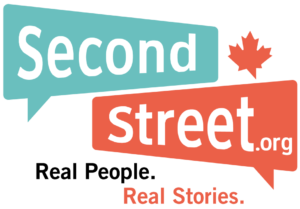THE CHRONICLE HERALD: Hundreds Of Nova Scotians Dying Annually On Surgery Waitlists
Nothing is as critical nor deeply personal as our health. Yet Nova Scotians and all Canadians have little control over their own outcomes when surgery is required. New research from SecondStreet.org shows that in 2018-19 alone, nearly 400 Nova Scotians died waiting for surgery.
SecondStreet.org obtained data from provincial health departments, health regions and hospitals across Canada. The health bodies cover less than half of Canada’s population and their combined data showed 1,480 Canadians died waiting for surgery in 2018-19. Of the regions with reliable data, Nova Scotia had the highest per-capita number of people die waiting for surgery.
Sixty-five per cent of those 398 Nova Scotians died after waiting longer than the government’s target time. For 25 of the deaths, the delays in treatment “might reasonably be implicated causally.” In just over half of those cases, the patients died after waiting longer than the medically recommended time period.
Overall, Canadian patients waited anywhere from less than a month to more than eight years before they died. Patients died while waiting for procedures that could be linked to the cause of their death (eg. cardiac surgery) and procedures which could have increased their quality of life (eg. knee surgery).
The data were incomplete and reveal significant issues with reporting quality. Many health regions do not record why Canadians drop off surgery wait lists. For example, no data whatsoever was available in New Brunswick or Newfoundland and Labrador.
In Nova Scotia, the data was fairly comprehensive. For that, the government deserves credit. The numbers illuminate the problem.
In Canada, politicians decide between funding surgical procedures or letting patients spend more time on waitlists while the money is spent building football stadiums, bailing out corporations and countless other activities.
These political decisions have human costs.
In Ontario, 18-year-old Laura Hillier died from cancer – despite having a bone marrow donor lined up – after waiting seven months for a surgeon to become available. The government had only allocated enough funds for five transplants per month and Laura was forced to wait. She released a public cry for help, afraid she would die before treatment.
In Quebec, 72-year-old Michael Houle spent five months on a waitlist before he died, despite requiring cardiac surgery within two to three months. A few months after his death, the government called to plan his surgery.
In Nova Scotia, the government may allot enough funds for, say, 200 hip replacements surgeries in a given year. Patient number 237 will simply need to wait.
That is, unless they can find the funds to pay for health services abroad. According to a 2019 SecondStreet.org policy brief, Canadians made over 217,500 trips to other countries specifically for health care in 2017.
Many other countries share Canada’s goal of universal access to health care regardless of ability to pay. But most systems offer both government and private health care options.
Of the 11 countries surveyed by the Commonwealth Fund in 2017, Canadians were the most likely to wait two months or more to see a specialist and four months or more for surgery.
The pandemic will likely only make this problem worse.
Maintaining Nova Scotia’s public health care system, but allowing private clinics to offer health services, could increase patient options and reduce pressure on the crowded government system.
Like the majority of Canadian provinces, Nova Scotia already allows private clinics to conduct MRI scans.
Additionally, a private medical clinic opened in Halifax in 2018, charging patients $35 to see a nurse practitioner. Another private online clinic allows Nova Scotians to connect with doctors virtually. Both address Nova Scotia’s 47,000-person family doctor waitlist.
There is much ado about expanding patient choice in Canada but despite each of these private options existing, the sky did not fall, Nova Scotia’s universal health care system still served patients and the government continued to increase health spending.
The data shows too many Nova Scotians are dying while waiting for surgery. Isn’t it time politicians considered giving patients more choice?
Paige MacPherson is a SecondStreet.org contributor and a policy and communications professional based in Halifax.
You can help us continue to research and tell stories about this issue by making a donation or sharing this content with your friends. Be sure to sign up for our updates too!


